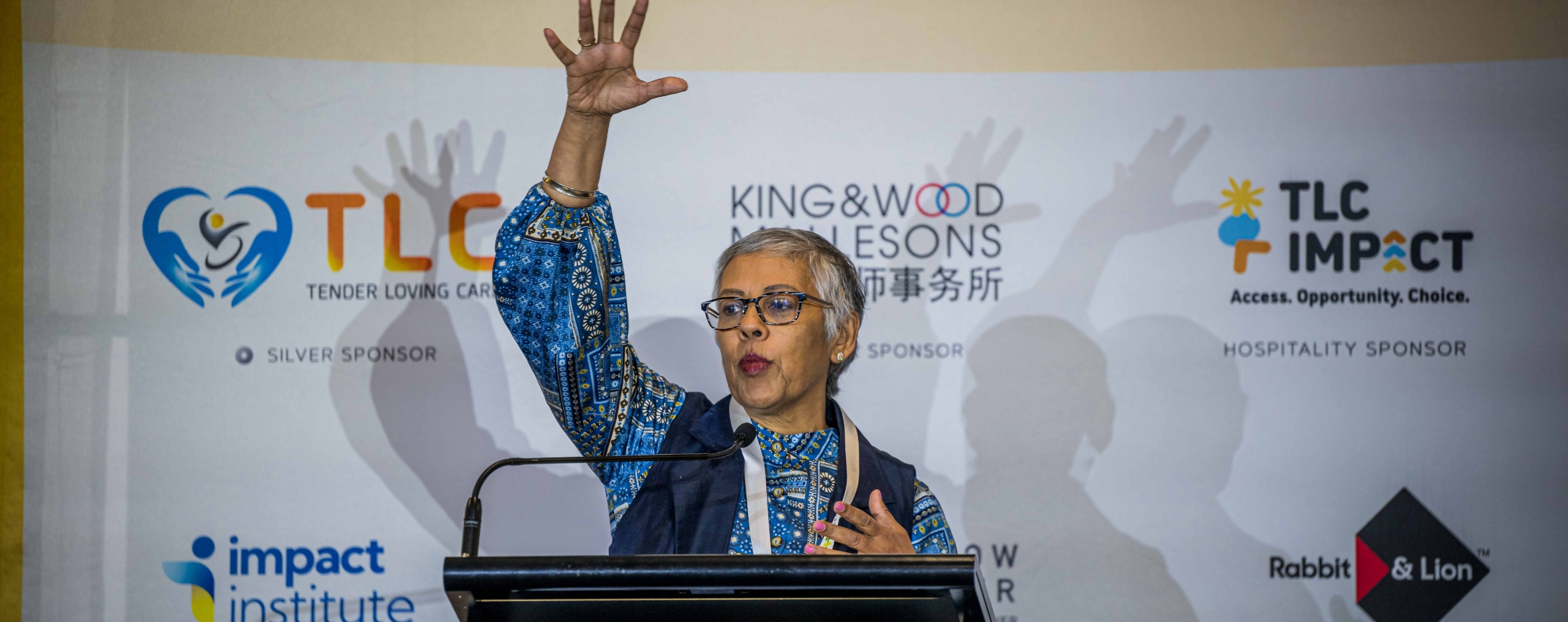By Paula Cowan, Managing Director, ImpactInstitute
I’ve been reflecting on a recurring question raised in sessions at this month’s Social Impact Summit: does better have to lead to bigger?
When our audience of smart, socially conscious people heard about the successful implementation of a beneficial program in a community, they often asked, “I love that, but how does it scale?
At first, I wondered why you’d want something that was so clearly place-specific or community-specific to grow larger. Is it because scale is synonymous with growth and therefore success?
In our consulting practice, this is definitely the norm. As integrated marketing specialists, we’re typically helping clients looking for greater reach, more leads, and engagement with larger numbers of customers.
That’s what we mean by scale.
But upon reflection, I’ve come to understand the question of scale in social impact initiatives isn’t always about larger solutions, it’s often about replicable solutions.
How do we take what worked in one time and place and make it successful in another?
What’s at the heart of what worked?
Let’s consider some of the many examples presented at Summit: the social value Australians derive from the Sydney Opera House, the social impact of New Zealand Food Network’s operations, the effect of employee ownership and cooperative models on people involved in enterprise, and the contribution of regional resilience programs to communities beyond metropolitan areas.
Common traits emerging from each of these case studies involved:
- Clarity of purpose: a laser-sharp focus on solving a defined problem; having a clear organisational mission and a shared value of outcomes.
- A framework in which to operate: a logic model, a common methodology, a set of guiding principles that ensure consistency and effectiveness across different contexts.
- Ability to customise: localising the initiative to suit specific communities, tailoring it to meet unique needs, and adapting it based on feedback from stakeholders.
- Easily understood measures of success: formative evaluation, impact measurement indicators, quantitative and qualitative data that clearly demonstrate the effectiveness and impact of the initiatives, or where you need to correct course.
- A simple story: the process, network of stakeholders and solutions aren’t simple, but the change being made is clearly articulated.
Fostering replicability
The key to scaling successful social impact initiatives is understanding that different conditions and contexts require unique strategies. We can bring a toolkit of ideas, a blueprint of what worked previously, expertise in systems, but we ultimately need to make sure we adapt to conditions.
As Dr Renu Burr highlighted in her keynote: in complex systems, it’s often not about providing a solution to a problem but about creating the enabling conditions for the solution to emerge.
The high-level principles previously discussed will provide a solid foundation, but what other organisational actions can we take to drive impact?
Speakers at Summit offered several helpful suggestions. One was to create a repository of process improvements, which allows for a review of past initiatives and provides a way to connect with those who have implemented successful programs.
Another spoke to the benefits of utilising knowledge sharing tools, such as the Co-op register and the B Lab chat function to share ideas within your community.
Most of all though, it comes down to culture — creating an environment that recognises ‘better’ doesn’t always mean ‘bigger’ and is more about making a larger impact.
It’s an approach our team at ImpactInstitute can get behind, and we’re excited to be on that journey with so many others.
Get in touch
If you’re looking to replicate the success of a program or initiative in a new context, we’re ready to help. We specialise in creating solutions that work and scale in meaningful ways. Let’s work together to turn your purpose into impact. Contact us.
